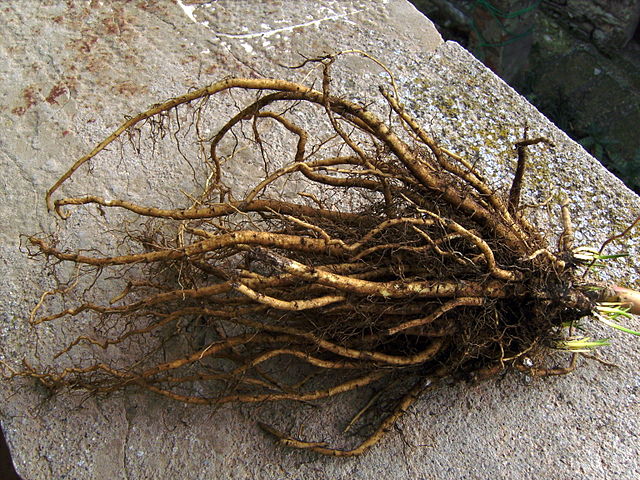Common Names and Other Names:
- Marshmallow
- Marsh Mallow
- Althea
- White Mallow
- Sweet Weed
Where Does It Occur:
Marshmallow (Althaea officinalis) is native to:
- Europe
- Western Asia
- North Africa
It typically grows in:
- Marshes
- Riverbanks
- Damp meadows
- Salt marshes
The plant prefers moist, marshy environments with rich, loamy soils and thrives in full sun to partial shade. It has been naturalized in parts of:
- North America
- Australia
- New Zealand
Basic Ingredients (Constituents):
Marshmallow contains several bioactive compounds:
- Mucilage Polysaccharides:
- Galacturonorhamnan
- Arabinogalactan
- Glucan
- Flavonoids:
- Kaempferol
- Quercetin
- Phenolic Acids:
- Ferulic Acid
- Caffeic Acid
- Syringic Acid
- Tannins
- Pectin
- Starch
- Amino Acids
- Vitamins and Minerals:
- Vitamin A
- Calcium
- Magnesium
- Iron
These constituents contribute to marshmallow’s demulcent, expectorant, anti-inflammatory, and antioxidant properties.
Most Commonly Used For Treatment Of:
- Respiratory Conditions:
- Coughs and Bronchitis: Soothes irritated mucous membranes and acts as an expectorant.
- Sore Throat: Relieves throat irritation and dryness.
- Asthma: Eases respiratory inflammation.
- Digestive Issues:
- Gastritis and Ulcers: Protects and soothes the lining of the stomach.
- Inflammatory Bowel Diseases: May help with conditions like colitis and Crohn’s disease.
- Constipation and Diarrhea: Mucilage content can normalize bowel movements.
- Urinary Tract Infections (UTIs):
- Cystitis and Urethritis: Soothes inflammation of the urinary tract.
- Skin Conditions:
- Wounds and Burns: Promotes healing and reduces inflammation.
- Eczema and Dermatitis: Soothes irritated skin.
- Dry Skin: Moisturizes and hydrates.
- Mouth and Throat Inflammation:
- Stomatitis and Gingivitis: Reduces oral inflammation and discomfort.
- Immune System Support:
- Antioxidant Properties: Helps neutralize free radicals.
Side Effects:
Marshmallow is generally considered safe when used appropriately, but potential side effects may include:
- Gastrointestinal Issues:
- Stomach Upset: Rare cases of nausea or indigestion.
- Allergic Reactions:
- Skin Rash: In sensitive individuals.
- Hypersensitivity: Rare but may include swelling or difficulty breathing.
- Interaction with Medications:
- Blood Sugar Medications: May lower blood sugar levels, affecting diabetic treatments.
- Absorption Interference: High mucilage content may slow the absorption of other drugs.
Available Forms in the Market:
- Dried Root and Leaves:
- Used to make teas, infusions, or decoctions.
- Powdered Extracts:
- Incorporated into capsules or tablets.
- Liquid Extracts and Tinctures:
- Alcohol-based extracts for internal use.
- Syrups:
- Formulated for cough and throat relief.
- Lozenges:
- Used to soothe sore throats.
- Topical Preparations:
- Creams, Ointments, and Gels: For skin applications.
Research and Results:
- Respiratory Health:
- Study: “Efficacy of marshmallow root extract in alleviating cough.”
- Findings: Demonstrated significant reduction in cough frequency and throat irritation.
- Reference: Journal of Ethnopharmacology
- Gastrointestinal Protection:
- Study: “Anti-ulcerogenic activity of Althaea officinalis.”
- Findings: Showed protective effects on gastric mucosa in animal models.
- Reference: Phytotherapy Research
- Anti-inflammatory Effects:
- Study: “Anti-inflammatory properties of marshmallow root extract.”
- Findings: Reduced inflammation markers in vitro and in animal studies.
- Reference: Journal of Pharmacy and Pharmacology
- Skin Healing:
- Study: “Effect of Althaea officinalis on wound healing.”
- Findings: Enhanced wound closure and tissue regeneration.
- Reference: Planta Medica
Note: While these studies are promising, more clinical research on humans is needed to confirm efficacy.
Precautions:
- Pregnancy and Breastfeeding:
- Use with Caution: Insufficient reliable information; consult a healthcare provider before use.
- Diabetes:
- Monitor Blood Sugar Levels: May lower glucose levels; diabetics should adjust medications accordingly.
- Medication Interactions:
- Absorption Interference:
- Timing of Medications: Take marshmallow at least 1 hour before or several hours after other medications to prevent absorption issues.
- Absorption Interference:
- Allergies:
- Individuals allergic to plants in the Malvaceae family (e.g., hibiscus, cotton) should exercise caution.
- Surgery:
- Discontinue Use: At least two weeks before scheduled surgery due to potential effects on blood sugar levels.
Conclusion:
Marshmallow (Althaea officinalis) is a valuable medicinal herb known for its soothing and healing properties. Rich in mucilage, it effectively relieves irritation and inflammation of mucous membranes in the respiratory, digestive, and urinary systems. Its anti-inflammatory and antioxidant effects also support skin health and wound healing.
Recommendations:
- Consult a Healthcare Professional:
- Before using marshmallow for medicinal purposes, especially if you have underlying health conditions or are taking medications.
- Use as Directed:
- Follow dosage instructions on product labels or as advised by a professional.
- Quality Products:
- Choose reputable brands to ensure purity and efficacy.
- Monitor Blood Sugar:
- Diabetics should monitor glucose levels when using marshmallow.
Disclaimer:
This information is intended for educational purposes and should not replace professional medical advice. Always consult a qualified healthcare provider for personalized guidance before using marshmallow for medicinal purposes.
« Back to Glossary Index